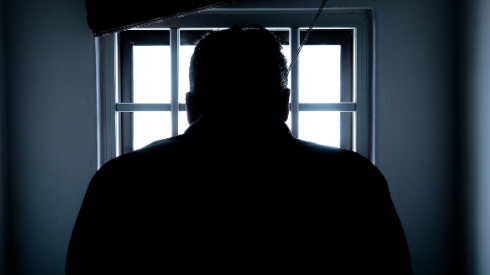OPINION: Voting not a reward, but a right with Prop 17
Produced in collaboration with City College history students

Proposition 17 restores voting rights upon completion of a prison term. Canva graphic
November 2, 2020
The below opinion piece was created in collaboration with students in the history classes of Professor Susan Hasegawa.
Proposition 17 amends the Constitution of California to allow U.S. citizens who are on state parole for a felony conviction the right to vote. This would also allow for these citizens to participate in elections.
This proposition has its roots tied to the beginning of California’s Constitution, which listed a myriad of exceptions that would not allow a person to vote. In 1979, Californians voted to amend it, only disqualifying citizens who are imprisoned or on parole for a felony.
People of color tend to be the ones convicted of felonies, which makes voting disproportionate to the population. Proposition 17 would amend this.
Those who are against Proposition 17 argue that this is not a fiscally responsible move and point to the fact that these people may be citizens, but are people who have committed violent and terrible crimes.
These citizens who have served prison time may have committed serious and violent crimes, but they are still forced to pay taxes.
We (as American colonists) could not fathom paying taxes to a government that would not represent our human rights. Those who turned against Britain were rebels, outlaws and tyrants.
Here in California, in the year 2020, why are we continuing to be hypocrites to our fellow Americans? Rather, we should allow these citizens on parole, with violent crimes, to vote. A government that takes our money should take our votes.
Jasmyne Baker
History major
Proposition 17 restores voting rights upon completion of a prison term to people who have been disqualified from voting while serving their prison term. If it is passed, it will cost the state and counties hundreds of thousands to register new voters and send out information and ballots. This is less than 1% of the state’s current General Fund budget.
California currently does not allow parolees who were convicted of a serious crime to vote. That means that for an average of three years, a person is not allowed to vote after serving their time in prison.
Around 50,000 people are on parole in California right now. The current system disproportionately affects people of color in California, stripping them of their right to vote. In past iterations of voter suppression for formerly incarcerated individuals, the loose language of the law was vague, left open to interpretation, and often used against people of color.
Looking for more information on Prop. 17? Visit the City Times’ Voters Guide to the Prop 17 here.
Proposition 17 opponents say that this will hurt the families of the victims of the convicted people. They also argue that parole is a process that determines if the individual is ready to re-enter society so they should not be given all the privileges of society until they can do that.
Voter suppression has been used to silence the voices of millions of people of color in the United States and the current parole system in California continues to do so. When people serve their time in prison, have they not paid for their crimes? Why should they continue to be stripped of their rights when their responsibilities, such as paying taxes, are not also stripped? The act of voting in our state and country is a right that should be taken away from none and this is a step in the right direction. Vote Yes on Proposition 17.
Nathaniel Larsen
Physics Major
Currently, people on parole/probation or in federal prison do not have the right to vote. Former Gov. Jerry Brown passed a law that granted those in county jail the right to vote. I believe it should be the opposite; while incarcerated you should have that right taken away, and upon starting parole or probation, you should have the right reinstated.
Many oppose this proposition because they believe that it is unfair for criminals who have committed violent crimes, such as murder and rape, to be given the right to vote. Most believe that they should finish their prison term and parole term and then be granted that right.
As someone who has been on probation, my right to vote was taken away until I finished my probation term. I believe everyone should have the right to vote because not everyone is a bad person. Some people go to jail for making wrong choices, but that doesn’t define a person. There were many propositions that affected me at the time, and I wish that in that time I had the right to vote in order to make a change in society. Everyone good or bad should have that right.
Michelle Arellano
Studying Behavioral Science
City Times wants to hear your voice. We are looking for our community — fellow students, faculty, staff and alumni — to share perspectives on the elections. You can send your thoughts in writing by email or share them on social media, including @sdcitytimes and #cityspeaks. You can also leave us a voice recording.











